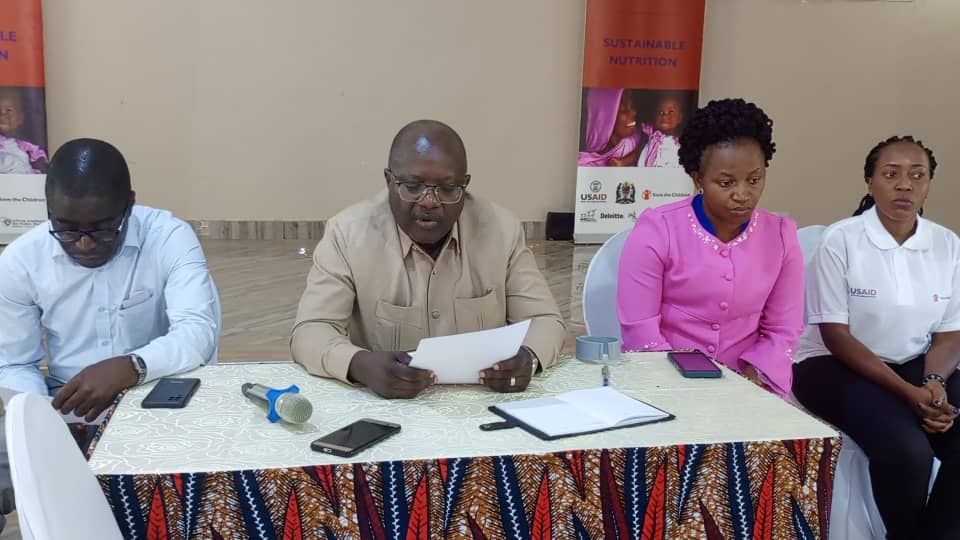The USAID Sustainable Nutrition PROJECT has established 186 model farms and reached and empowered 6,842 farmers as part of its strategies to help Iringa Region deal with poverty.
The statistics of 2018 show that in every 100 children under the age of five in the region, 47 equal to 47 percent are stunted due to poor nutrition.
Coordinator of USAID Sustainable Nutrition (Agriculture, Livestock and Fisheries), Samwel Kitila said that the action is aimed at enabling the community to increase the production and consumption of foods rich in nutrients.
He said the project did not end with the farmers as it also worked to build the capacity of 99 Saving and Borrowing Groups (VSLA) so that they have the reputation of being successful and already 50 of them have successfully obtained a loan of 83 Million Shs to continue developing their entrepreneurial activities.
"The project is also determined to increase the availability and provision of quality nutrition services at the level of health centers and communities by strengthening the capacity of health service providers," he said.
In a joint session of stakeholders aimed at finding out the success of the implementation of the project, its challenges and solutions in order to set sustainable strategies, the Administrative Secretary of Iringa Region, Engineer Leonard Masanja asked the leaders and executives of the region to collaborate with stakeholders to reduce stagnation in the region.
Engineer Masanja said;
"Each of us needs to ensure that we provide quality nutrition services and reach all the beneficiaries to reduce the effects of malnutrition and especially stunting among our society."
Through the support of the American people, Masanja said the Iringa region recognizes the great contribution of the USAID Sustainable Nutrition Project from 2018 to 2023 in solving the problem of poor nutrition, malnutrition.
He said the project has contributed in many areas including;
to increase motivation for behavior change among pregnant women, breastfeeding women, children under five years old and young people of adolescent age through leading women, parenting groups and nutrition clubs.
He has also urged the executives to manage nutrition plans and budgets for the year 2023/2024 from the village level to the council to ensure that the planned activities continue to solve the nutritional challenges in the community.
"All health care centers, schools and the government should plan nutrition activities that will help reduce malnutrition," said Masanja.
The representative of USAID Sustainable Nutrition Project Director Dr. Joyceline Kaganda, Dr. Benny Ngerez said apart from Iringa, the five-year project is being implemented in Rukwa, Morogoro and Dodoma regions.
